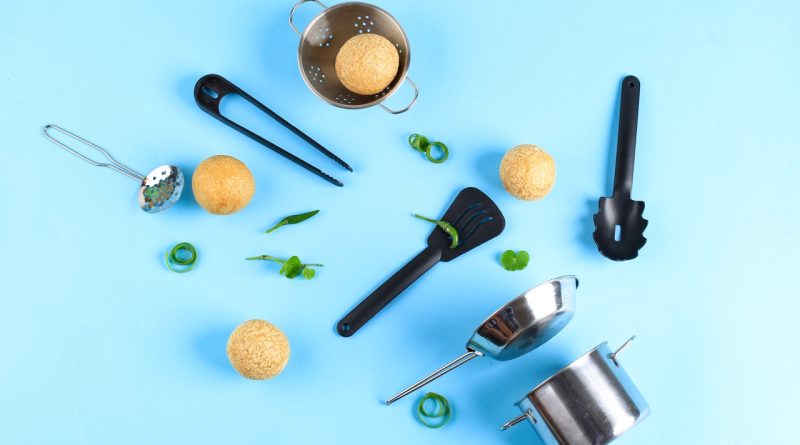How Zwilling Tests Sharpness And Durability
===
In the world of culinary arts, the quality of kitchen tools can significantly impact the cooking experience. Zwilling, a renowned brand in the knife-making industry, has developed rigorous testing standards to ensure that their products meet the highest benchmarks for sharpness and durability. This article explores Zwilling’s approach to knife testing, the significance of sharpness in culinary performance, and practical tips for maintaining the longevity of these essential kitchen tools.
Understanding Zwilling’s Approach to Knife Testing Standards
Zwilling employs a multi-faceted approach to evaluate the sharpness and durability of its knives. The testing process begins with a series of controlled assessments that measure the blade’s edge retention and cutting ability. Sharpness is evaluated using specialized equipment that quantifies the force required to slice through various materials, ensuring that the knives perform effectively in real kitchen environments. This scientific method allows Zwilling to produce knives that consistently meet high-performance standards.
In addition to sharpness testing, Zwilling conducts rigorous durability tests, which include a combination of bending and impact tests. These tests simulate real-life conditions that knives may encounter during everyday use, helping to identify potential weaknesses in blade construction and material quality. By using advanced materials and manufacturing techniques, Zwilling ensures that their knives withstand the demands of a bustling kitchen without compromising their integrity.
Moreover, Zwilling’s commitment to quality extends beyond the laboratory. The company gathers feedback from professional chefs and home cooks alike, enabling them to refine their designs based on real-world usage. This ongoing collaboration with culinary experts ensures that Zwilling knives not only meet industry standards but also cater to the needs and preferences of cooks at all levels.
The Importance of Sharpness in Culinary Performance Explained
Sharpness is a critical factor in the performance of kitchen knives, as it directly influences the efficiency and precision of cutting tasks. A sharp knife allows for clean, effortless cuts, which are essential for maintaining the texture and presentation of ingredients. Whether chopping vegetables, slicing meat, or filleting fish, a well-honed blade enables cooks to execute their techniques with confidence and accuracy.
From a scientific standpoint, sharp knives reduce the force required to cut through food, minimizing bruising and cellular damage. This preservation of ingredient integrity is particularly important in culinary practices where presentation and flavor are paramount. Additionally, a sharp knife enhances safety in the kitchen; paradoxically, dull knives often lead to accidents, as users apply excessive force, increasing the likelihood of slips and cuts.
Moreover, the psychological aspect of working with sharp knives cannot be overlooked. Cooks who use well-maintained, sharp tools often report a more enjoyable cooking experience. The satisfaction of achieving precise cuts and a smoother workflow can elevate the overall culinary process, making cooking not just a task, but a creative and fulfilling endeavor.
Durability Testing: Ensuring Long-lasting Kitchen Tools
Durability is another cornerstone of Zwilling’s knife testing standards. The brand recognizes that for knives to be reliable kitchen companions, they must be able to endure the rigors of daily use. Zwilling’s knives undergo extensive testing that simulates years of wear and tear, ensuring that they can handle various challenges without losing their functionality.
One of the key aspects of durability testing is the examination of the materials used in the blade’s construction. Zwilling often employs high-carbon stainless steel, which not only provides excellent sharpness but also enhances resistance to corrosion and wear. This careful selection of materials ensures that their knives maintain their performance and aesthetic appeal over time, even when subjected to the harsh conditions of a busy kitchen.
Furthermore, Zwilling evaluates the overall design and ergonomics of its knives to ensure they can withstand the stresses of cutting and chopping. The balance and weight distribution of a knife play crucial roles in its durability, as a poorly designed knife can cause undue stress on the blade and handle. By focusing on both material quality and ergonomic design, Zwilling creates knives that not only perform well but also last for years, making them a worthy investment for any culinary enthusiast.
Practical Tips for Maintaining Knife Sharpness and Durability
To ensure that your Zwilling knives maintain their sharpness and durability, proper care and maintenance are essential. Regular honing is crucial for keeping the blade edge aligned and sharp. A honing rod can be used to realign the edge before each use, helping to prevent the need for frequent sharpening. This simple step can extend the life of your knife and enhance its performance in the kitchen.
When it comes to cleaning, always hand wash your knives with warm, soapy water and dry them immediately. Avoid placing them in the dishwasher, as the harsh detergents and high temperatures can damage both the blade and handle. Additionally, storing your knives properly is vital; using a knife block, magnetic strip, or blade guards can protect the edges from chipping and dulling.
Lastly, consider periodic professional sharpening as an investment in your knives’ longevity. While honing keeps the edge aligned, professional sharpening restores the blade to its original sharpness. Maintaining a routine of care and professional service will ensure that your Zwilling knives remain reliable partners in your culinary adventures for years to come.
===
In conclusion, Zwilling’s rigorous testing standards for sharpness and durability underscore the brand’s commitment to quality and performance in the kitchen. Understanding the significance of sharpness in culinary tasks and the importance of durability can help cooks of all levels appreciate the value of well-made knives. By adopting practical maintenance tips, users can ensure that their Zwilling knives continue to deliver exceptional results, enhancing their cooking experience and inspiring culinary creativity.
